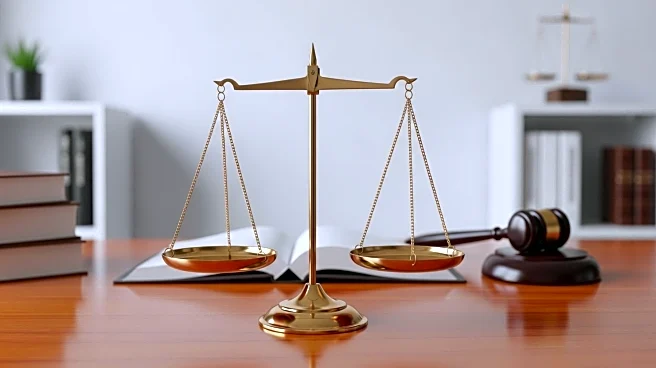What's Happening?
A Nigerian law firm, F.K. Nnadi & Co., has issued pre-action notices to the University of Lagos (UNILAG) and Obafemi Awolowo University (OAU) over alleged irregularities in their 2025 Post-Unified Tertiary Matriculation Examination (Post-UTME) results. The firm accuses the universities of awarding unjustifiably low scores and withholding results without explanation, potentially jeopardizing the admission chances of many candidates. The law firm has also petitioned the House of Representatives and the National Universities Commission (NUC) for intervention. UNILAG has denied any technical glitches, asserting that flagged cases were due to clear violations of examination guidelines, detected through multiple monitoring systems, including video surveillance.
Why It's Important?
The allegations highlight significant concerns about the integrity of the examination process in Nigerian universities, which could impact the future of many students. If proven, these irregularities could undermine trust in the educational system and affect the universities' reputations. The situation also reflects broader issues within the Nigerian education sector, where technical glitches and administrative errors have previously affected national examinations. The outcome of this legal threat could set a precedent for how examination disputes are handled in the future, potentially leading to reforms in examination processes and increased transparency.
What's Next?
The law firm has given OAU three months and UNILAG 30 days to comply with its requests, including granting access to answer scripts and marking schemes. If the universities fail to meet these demands, the firm plans to initiate legal proceedings at a Federal High Court. The case could prompt further scrutiny from educational authorities and possibly lead to policy changes to prevent similar issues in the future. Stakeholders in the education sector, including students, parents, and educational bodies, will be closely monitoring the developments.
Beyond the Headlines
This situation underscores the challenges faced by the Nigerian education system, including the need for technological upgrades and better oversight mechanisms. The controversy also raises questions about the fairness and reliability of digital examination systems, which are increasingly being adopted worldwide. The case could lead to a broader discussion on the role of technology in education and the importance of ensuring that digital tools are robust and error-free.









